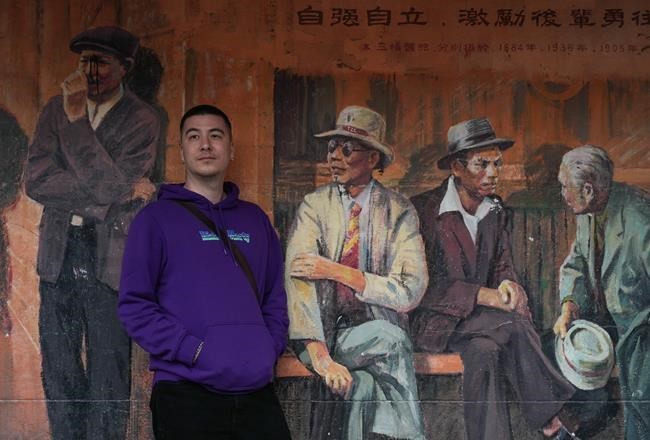Mark Lee, a professional translator and former council candidate in Richmond, B.C., says he knows what it's like to walk the fine line faced by fellow Chinese Canadians entering the political arena amid scrutiny of alleged foreign interference.
He says he's not ignorant of the risks and considers potential political interference a serious issue that needs to be addressed.
"I've seen things that I think are maybe suspicious, or I feel like I don't agree with coming out of, for example, the (Chinese) consulate," said Lee, who ran unsuccessfully last year as part of the slate for the Richmond Citizens Association.
But he also worries about Chinese Canadians being tarred by association, and the potential for misunderstanding of "cultural dynamics" during a debate about political interference that has been going on for years within Chinese communities but has recently triggered broader scrutiny and calls for a public investigation.
“There were some people in Richmond who were basically treating it like, if you have any connection with certain groups, then you must be a Chinese government spy or infiltrated or something like that,” said Lee, who lives in the most ethnically Chinese city in Canada.
Lee's concerns are echoed by Chinese Canadian figures across the political spectrum who simultaneously worry, with varying emphasis, about interference by Chinese authorities, a lack of nuance, racism and the use of the debate to push wedges into ethnic Chinese communities.
The Globe and Mail newspaper reported last month that China had worked to help ensure a Liberal minority victory in the 2021 federal election, as well as defeat Conservative politicians considered unfriendly to Beijing, including Kenny Chiu, who lost his seat in Steveston-Richmond East.
Chiu says he's gravely concerned that possible foreign interference may have played a role in his election loss, but also worries about oversimplification, and a monolithic view that Canadians with Chinese links are more likely to be influenced.
Doing so, he said, would play into the hands of foreign governments looking to shape the outcomes of Canadian elections while also putting Canada's multicultural society at risk.
The key, Chiu said, is to fight racism regardless of the victims' ethnicity or cultural background, reducing the chance of it being used to turn Canadians against each another.
"They know that this is a wedge that they can drive into Canadian society," Chiu said of potential Chinese meddling and accusations of racism.
He added that there was a lack of nuance in the debate and was "alarmed" by some of the comments he heard from people generalizing about ethnic origins that, for example, if you were from Taiwan, you must be pro-democracy and for freedom and justice, which isn't necessarily true.
Conservative Leader Pierre Poilievre and NDP Leader Jagmeet Singh have called for a full public inquiry into foreign meddling in Canadian elections, something that Prime Minister Justin Trudeau has resisted.
Poilievre said on March 1 that Chinese Canadian community members are "wonderful" and victims of foreign interference, and any inquiry should include ways to protect people from Beijing.
"Chinese Canadians are patriotic. They are faithful to our country. They deserve our protection," said Poilievre, calling it "absolutely unacceptable" that they should be harassed or intimidated by foreign powers.
Kenneth Tung, a former chair of Vancouver-based immigrant services group SUCCESS, hosts a news talk show on Chinese language radio AM1470.
Tung said that attributing any scrutiny of Chinese Canadian politicians to racism would be a mistake.
Canadians with ethnic, cultural, linguistic or other links to China shouldn't run into problems if their actions reflect Canadian values as a priority, he said.
"I think it's important to make it clear: As a Canadian Hong Konger or Canadian Chinese, we don't need to defend an issue, especially issues that will confuse (observers) if we are defending the Beijing regime," Tung said.
He added "if it's an issue related to the Beijing regime, if it's not our Canadian value, we should condemn it."
In 2016, then Vancouver city councillor Kerry Jang faced criticism when he and dignitaries including then Chinese consul-general Liu Fei wore red neckerchiefs as the Chinese flag was raised at City Hall to mark Chinese National Day.
Critics said the knotted scarves were a Communist symbol, while event organizer Ma Zaixin said a provider had "misunderstood" what type of scarves were required, according to documents released under a freedom of information request.
Jang, a third-generation Chinese Canadian, said he “vividly remembered getting hate mails, death threats. I never was once influenced or told to do something," he said.
As a former politician, Jang said he had met diplomats from many countries, including China. That didn't automatically make him a spy from China, he said.
He said insinuation is no substitute for evidence. “If there is proof that you should charge somebody, you should put them in jail for interfering in our elections," Jang said. "Or if it was a diplomat from whatever country, send them home. Have them expelled."
Lee says the debate isn't deterring him from the political scene, and he plans to run again at the next municipal election.
He sees Chinese Canadians' participation in politics important in the context of the foreign interference debate, because their interactions with Chinese authorities have given them "a pretty realistic understanding of the way they operate."
Lee sees a role for Chinese Canadians that transcends them being seen as victims or perpetrators of foreign interference. Instead, he wants them to play a bigger role interpreting the hazards.
Chinese Canadians like him, he says, "maybe have a little bit more cultural knowledge or a little bit more understanding of the way (this) type of interference can look."
This report by The Canadian Press was first published March 8, 2023.
This story was produced with the financial assistance of the Meta and Canadian Press News Fellowship.
Chuck Chiang and Nono Shen, The Canadian Press



